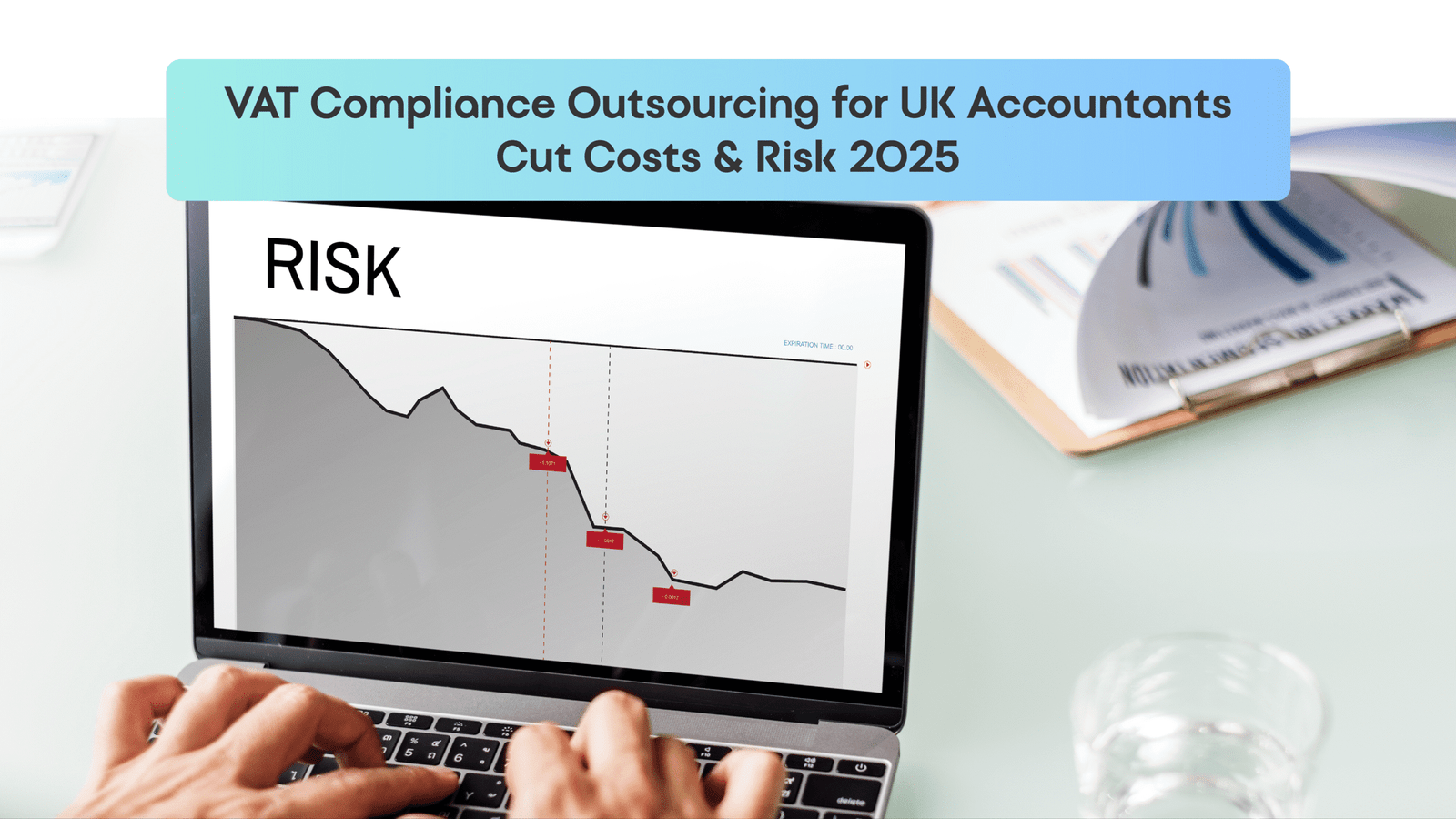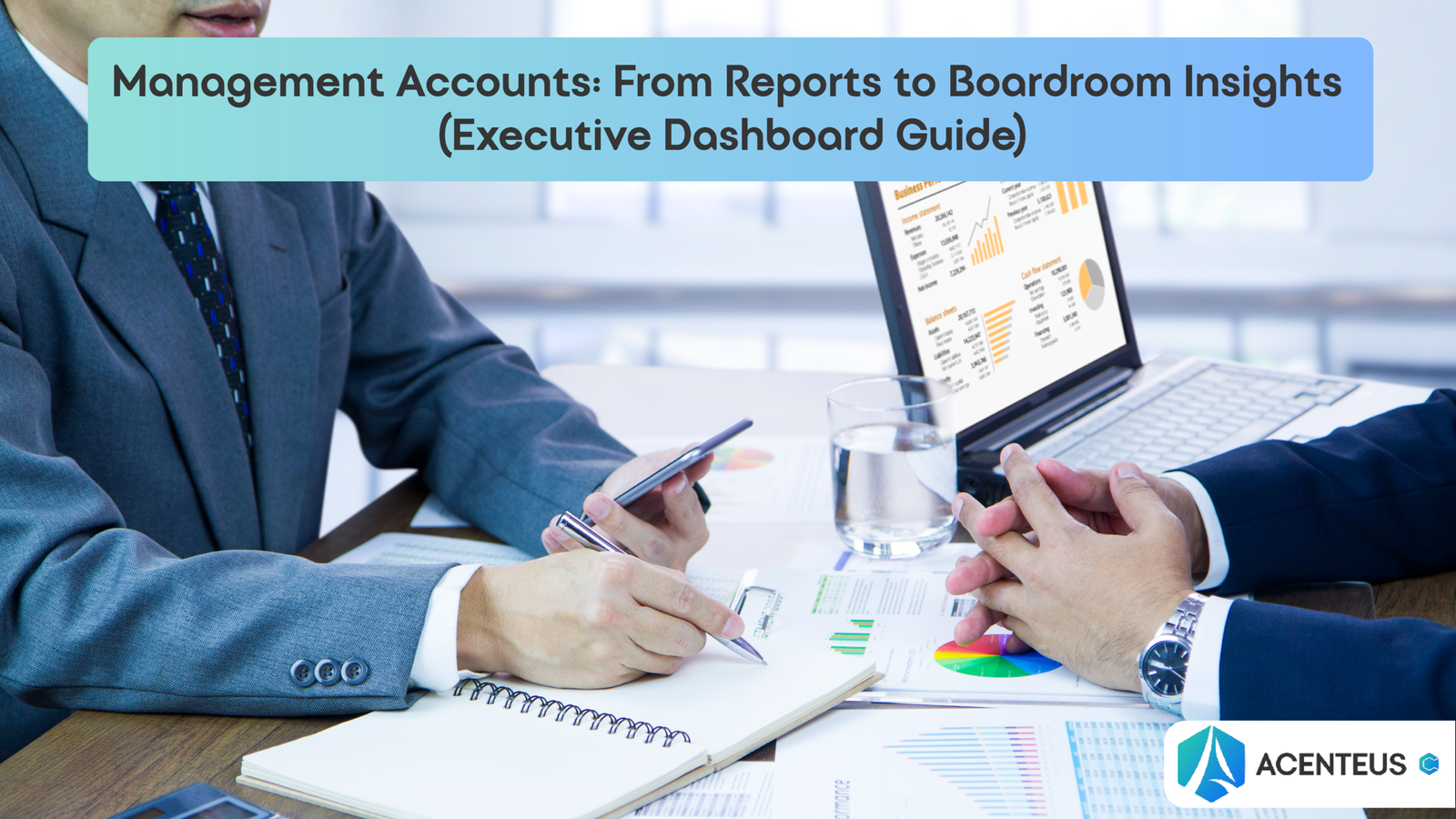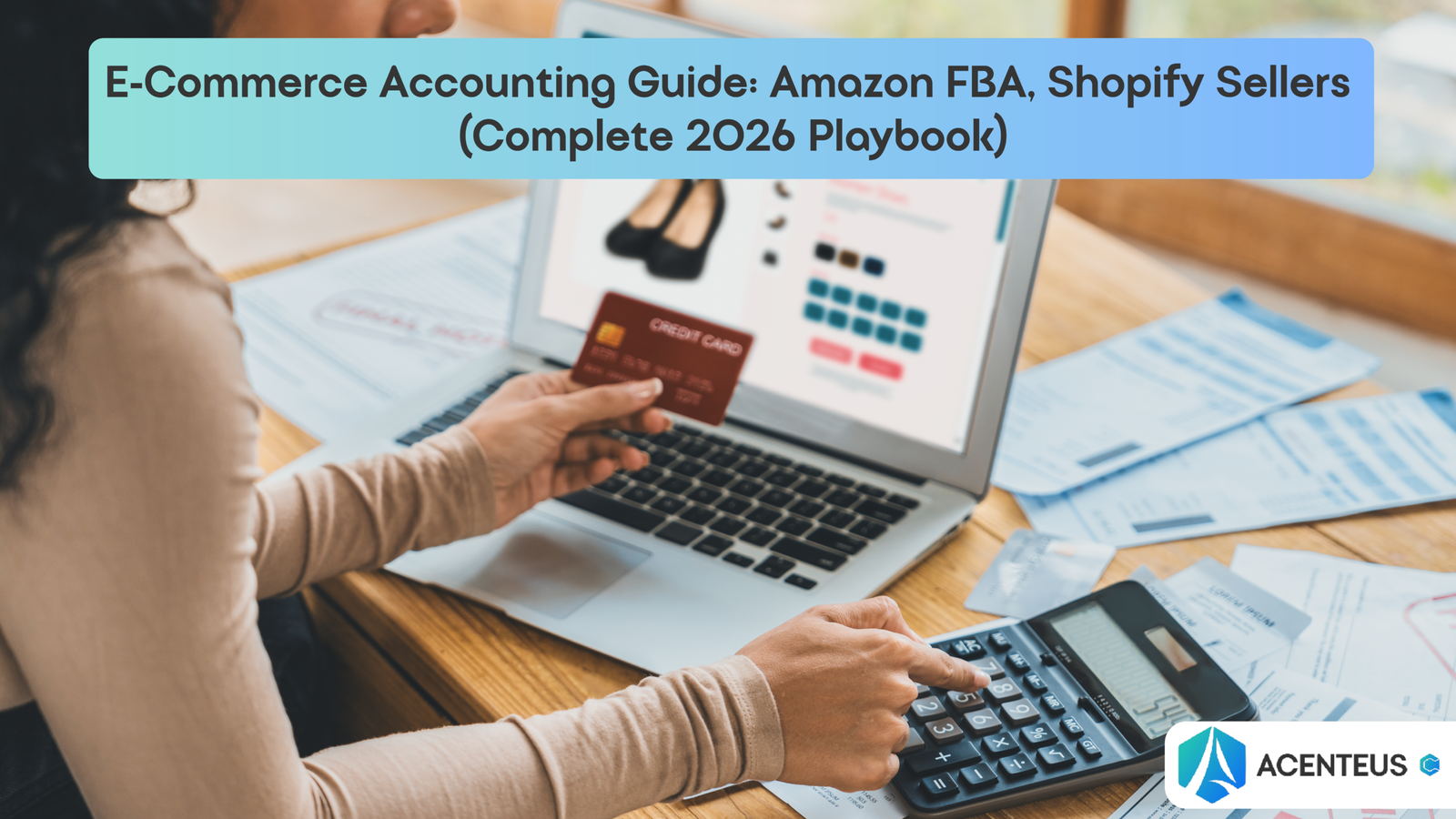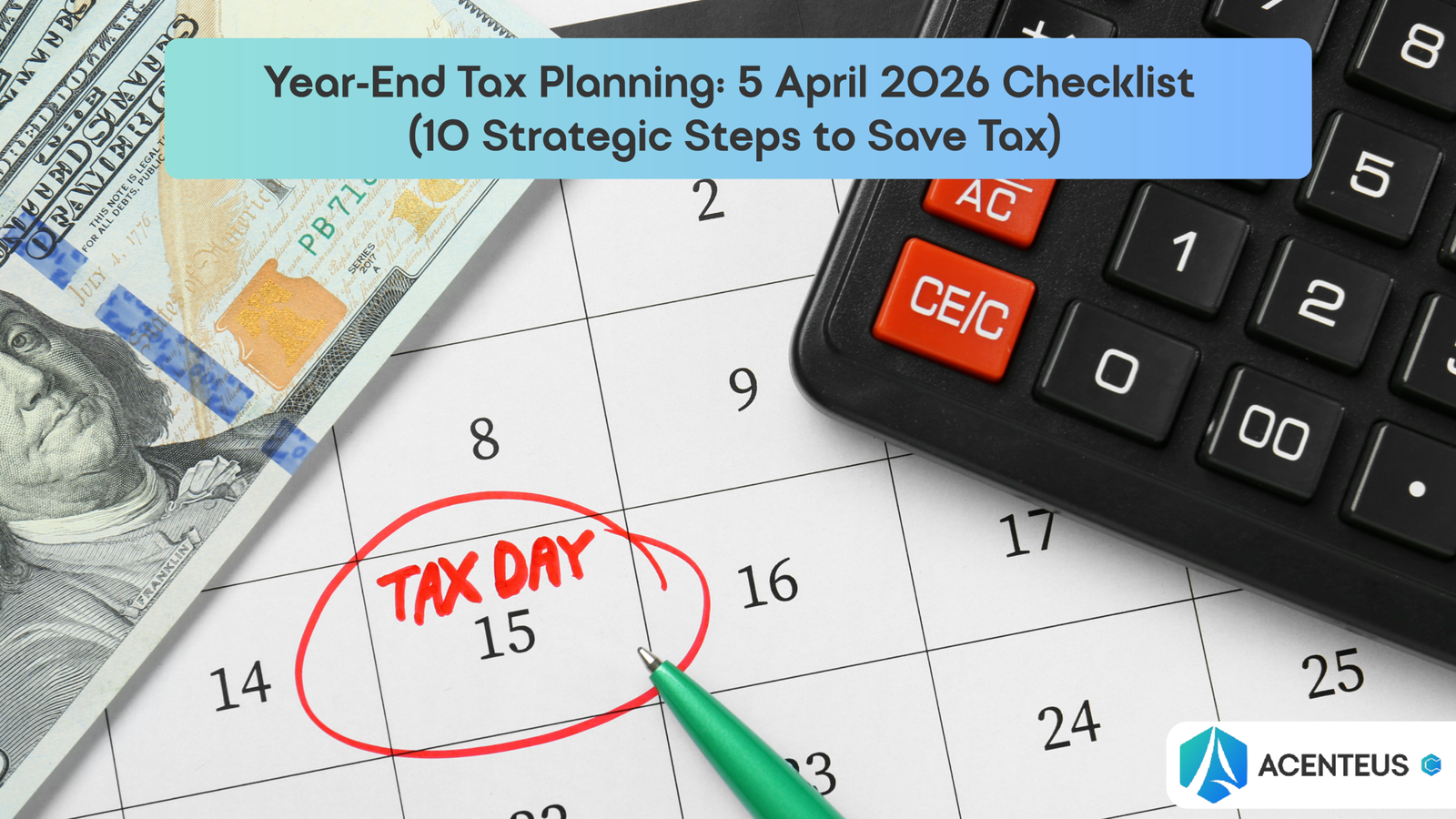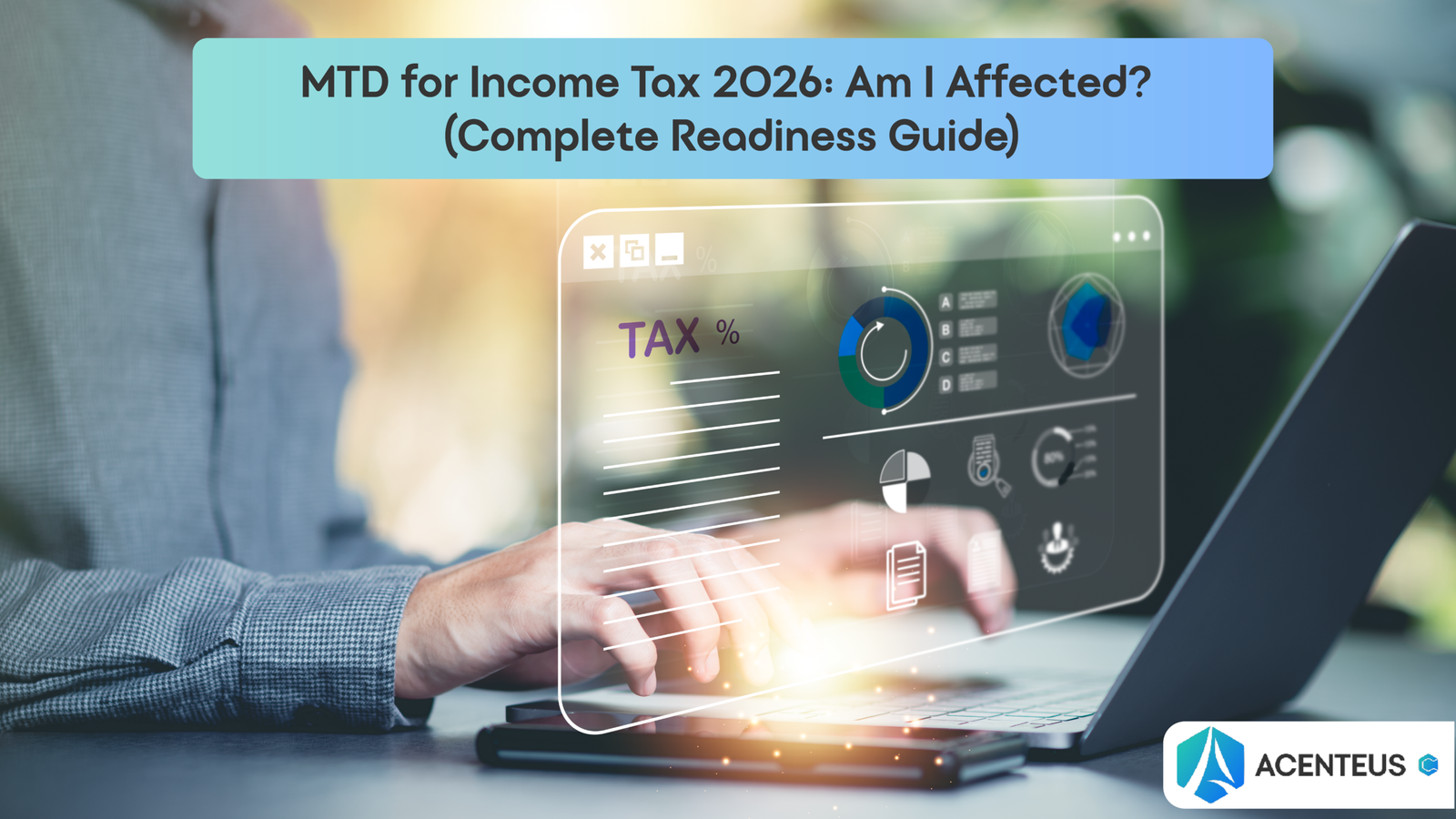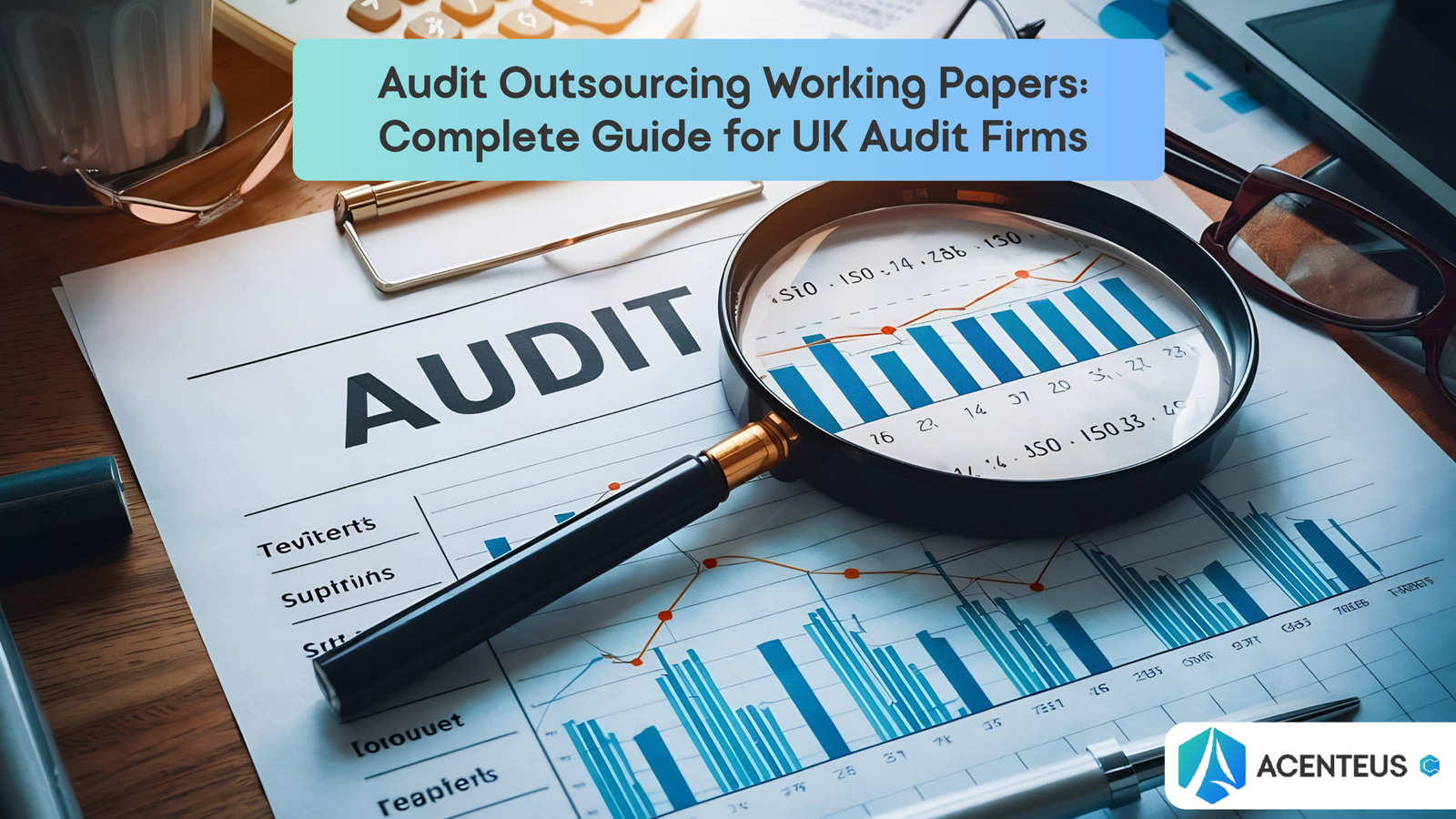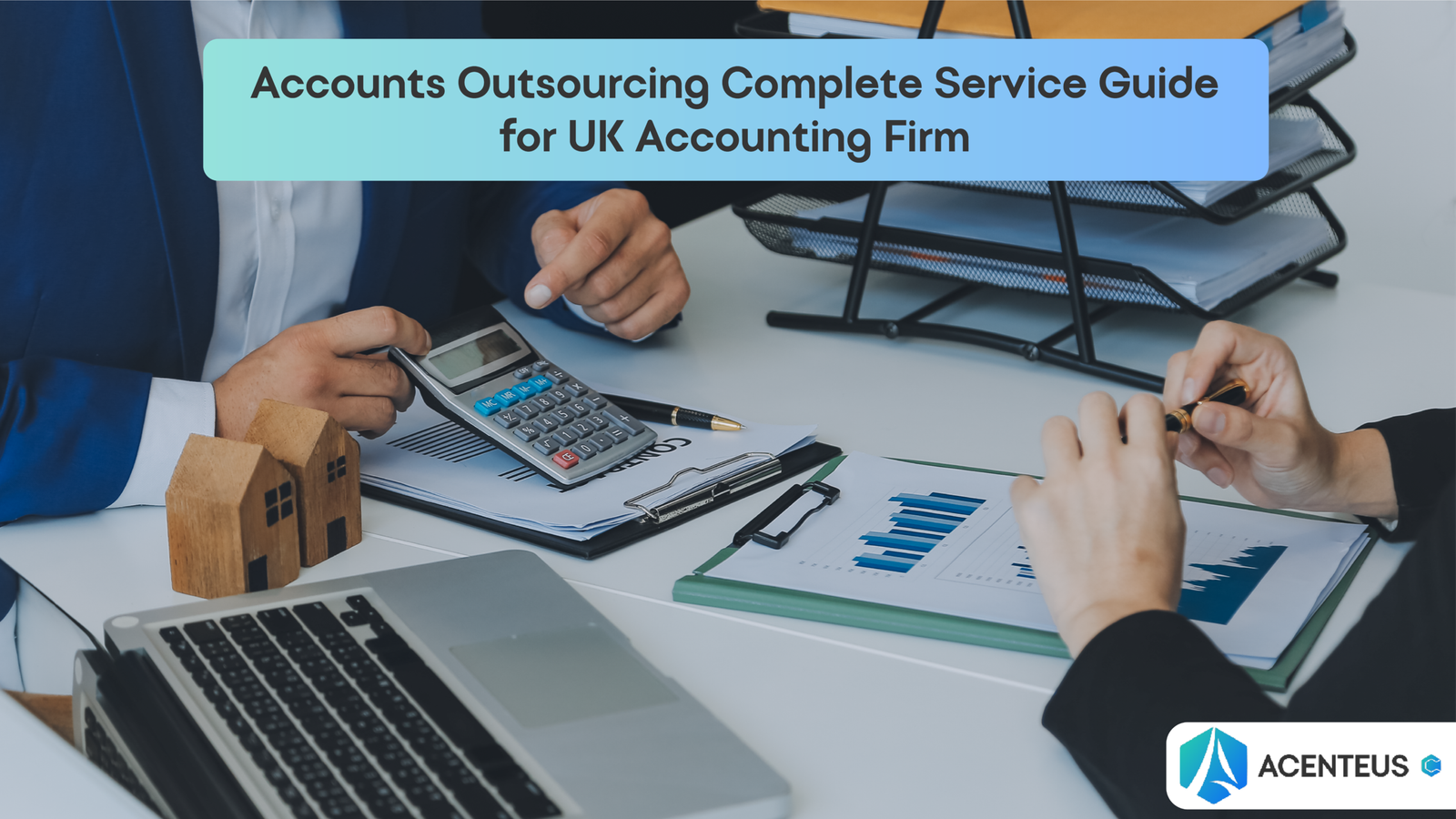For busy UK accountants and accounting firms, VAT rules grow more complex each year, placing heavy compliance demands on their teams and clients. Quarterly VAT returns, Making Tax Digital (MTD) requirements and cross-border VAT rules can quickly consume staff time. For many practices, handling all these tasks in-house is costly and risky. VAT compliance outsourcing offers a smarter solution by shifting routine work to experts, so your firm can focus on high-value client services and advisory.
What Is VAT Compliance Outsourcing?
VAT compliance outsourcing means entrusting part or all of your firm’s VAT-related work to a specialised third-party provider. These VAT experts handle tasks like preparing VAT returns, reconciliations and filings, ensuring Making Tax Digital submissions, generating client reports, and managing HMRC correspondence. The outsourcing team effectively becomes an extension of your practice, working within your systems and processes to keep every submission accurate and on time under current UK law.
Typical VAT outsourcing services include:
- VAT registration and deregistration
- Preparing and filing VAT returns
- VAT reconciliation and reporting
- MTD for VAT integration and digital submissions
- EC Sales List (ESL) and Intrastat declarations
- Handling HMRC queries and audit support
- Cross-border VAT advice and planning
Outsourced teams use up-to-date accounting software and have a deep knowledge of HMRC rules. They deliver reliable VAT processes that fit smoothly with your in-house systems, reducing manual work and mistakes.
Key Benefits for Accountants
Managing VAT compliance in-house can be time-consuming and risky, especially for busy UK practices juggling multiple clients. Outsourcing VAT tasks to specialists offers tangible advantages that let your firm work smarter. The main benefits include:
1. Minimising Risk & Ensuring Accuracy
VAT penalties and interest can be severe if returns or records are incorrect. By outsourcing to dedicated VAT professionals, you put stringent checks in place to reduce errors. These experts know the latest UK VAT regulations inside out and apply them consistently across clients. Automated validation tools and audit trails are built into their processes, giving your firm higher accuracy and complete transparency.
Outsourcing also provides an added layer of review before HMRC sees anything. Leading providers run every return through multiple quality checks. This dual-control approach catches mistakes early and cuts the chance of post-submission corrections or HMRC queries. In short, outsourcing de-risks your VAT workflow and helps protect your firm’s reputation and clients’ interests.
2. Reducing Operational Costs
Training or hiring in-house VAT specialists can be expensive, and the costs of licences, software and infrastructure add up. VAT compliance outsourcing converts many of these fixed costs into variable costs. You pay only for the services you need, making it easier to manage resources during busy periods or growth spurts.
Instead of recruiting more staff, you can scale support up or down through your outsourcing partner. This flexibility keeps overheads lean and improves profit margins. The money saved on recruitment and training can be reinvested into higher-margin services like advisory or into modernising your practice.
3. Gaining Flexibility & Scalability
VAT workloads often spike after year-end periods, business expansions or regulatory changes. An outsourced team can ramp up quickly to meet demand without you having to scramble for temporary staff. They can also easily handle unusual situations, such as complex cross-border transactions or urgent HMRC deadlines.
For mid-sized accounting firms, this means you gain the capacity and agility to compete with larger firms. You can take on more clients or larger projects without sacrificing quality. When your billing goes up, VAT support scales up in step — and when volumes fall, you aren’t stuck with idle staff.
4. Access to Expert Guidance & Up-to-Date VAT Regulations
Keeping abreast of HMRC updates and intricate VAT rules is a full-time job. Outsourcing connects you to a team entirely dedicated to VAT compliance. They continually update their knowledge – for example, on the latest post-Brexit VAT rules or new HMRC guidelines (such as the 2024 “Guidelines for Compliance” which emphasise robust controls). This means your practice automatically gains a level of VAT expertise that would be hard and costly to build internally.
Many outsourcing providers also act as consultants. They can advise your team on tricky issues like VAT recovery on international expenses or VAT implications of new legislation. Instead of spending hours researching or training staff, your accountants can rely on the partner’s expertise to get answers quickly and advise clients confidently.
What to Seek in a VAT Outsourcing Provider
Choosing the right partner is key to reaping the full benefits of VAT outsourcing. Keep these factors in mind:
- UK VAT Expertise: Look for a provider with deep experience in UK VAT law and a track record with accounting firms. They should understand HMRC’s specific rules, deadlines and reporting requirements.
- Integration & Security: Ensure the partner works with your accounting software (Xero, QuickBooks, Sage, etc.) and supports secure data transfer. They should use encrypted cloud portals and comply with GDPR to protect sensitive client information.
- Process & Communication: Review the provider’s workflow and communication practices. Do they offer a dedicated account manager? Can they tailor their process to fit your firm? Transparency, responsiveness and regular updates (through reports or dashboards) are crucial for a smooth collaboration.
Scalability: Confirm that the partner can grow with your firm. They should have the flexibility and resources to adjust their services as your client base and needs expand.
Best Practices for Seamless Onboarding & Integration
Starting a VAT outsourcing partnership requires careful planning and communication. Follow these steps for a smooth transition:
- Define Scope: Decide exactly which VAT tasks you will outsource and set clear expectations (deadlines, accuracy targets, reporting metrics).
- Secure Data Transfer: Use encrypted cloud storage or a secure portal to share documents. Provide sample returns or test data so the provider learns your formats and VAT coding.
- Set Up Communication: Schedule regular check-in calls and define contacts on both sides. Open feedback channels early to clarify issues quickly.
- Collaborate on Initial Filings: Work together on a few sample VAT filings. This helps the provider understand your procedures and lets your team learn how to review the partner’s reports.
- Monitor and Refine: During the first 2–4 weeks, closely review completed returns and ask questions. Refine report formats and timelines as needed. After this transition period, the partner will be fully calibrated and you can confidently hand off more work.
A strong onboarding process sets the stage for long-term success. The better you collaborate upfront, the faster your firm will enjoy the time savings and quality improvements of VAT outsourcing.
Real-World Example: A UK VAT Success Story
A UK distribution company with over 100 employees sells electronics domestically and into the EU. After Brexit, their small finance team struggled with changing VAT rules, manual processes and tight deadlines:
- Challenges: They had no dedicated VAT expert, so the new EU/VAT rules were confusing. Returns were often filed late or needed corrections after HMRC queries, and manual records meant some input tax claims were missed. The firm faced potential penalties and frustrated managers.
- Solution: They partnered with Acenteus, a UK-based VAT outsourcing firm. Acenteus took over all VAT tasks: automating data feeds from the client’s accounts, preparing and filing returns on time, and handling HMRC correspondence. They also ran monthly reconciliations to ensure every valid VAT refund was claimed.
- Results: The client’s VAT returns became error-free and were always on time. The finance team saved hundreds of hours, while Acenteus kept them informed of all VAT law changes. Overall compliance risk dropped significantly, and the client could focus on core business instead of VAT paperwork.
This example shows how a tailored VAT outsourcing partnership can transform a busy firm’s operations, improve compliance, and free up valuable time for strategic work.
Risks of VAT Compliance Outsourcing — and How to Avoid Them
Every outsourcing decision carries some risk, but you can manage it with the right precautions:
- Data Security: Sharing financial data externally raises concerns. Choose a partner with robust security: encrypted transfers, secure storage and GDPR compliance. They should sign confidentiality agreements and welcome audits to prove their controls.
- Visibility: You may worry about losing control over filings. Prevent this by requiring detailed reports and real-time tracking. Keep final review rights on returns before submission, so you always see exactly what goes to HMRC.
- Expertise and Communication: Some providers may lack expertise in UK VAT or effective communication skills. Mitigate this by selecting a UK-specialist partner with a knowledgeable VAT team. Establish clear communication protocols — including regular meetings, prompt response times, and dedicated contacts — to ensure that nothing falls through the cracks.
By doing due diligence and maintaining open communication, you can minimise these risks. The efficiency and compliance gains typically outweigh the challenges when managed carefully.
Conclusion
VAT compliance outsourcing is a strategic game-changer for UK accountancy firms. It dramatically reduces the burden of day-to-day VAT work, freeing your team to focus on value-added services. A trusted outsourcing partner brings expertise, cutting-edge tools, and up-to-date knowledge of HMRC rules, all while helping you control costs. When done right, outsourcing VAT drives better accuracy, scalability and profitability.
Don’t let complex VAT tasks slow down your firm. Find out how VAT outsourcing can become your secret weapon for growth and client satisfaction. To learn more, visit Acenteus today and see how our VAT compliance services can support your practice.
Frequently Asked Questions
Most VAT outsourcing providers handle end-to-end VAT tasks: registration, return preparation and filing, reconciliations, Making Tax Digital (MTD) submissions, EC Sales and Intrastat reporting, and support during HMRC audits or queries.
Absolutely. Outsourcing levels the playing field, giving smaller firms access to specialist resources without huge fixed costs. It allows them to scale services up or down as they grow, without needing a large in-house VAT team.
Firms often save around 30–50% compared to managing VAT entirely in-house once you factor in recruitment, training and software costs.
Yes, when you choose a reputable provider. Most use end-to-end encryption, secure cloud storage and strict access controls. They should also be fully GDPR-compliant. You can further protect data by agreeing on confidentiality measures in your contract.
Onboarding typically takes about 2–4 weeks. This includes setting up systems, transferring sample data, and testing a few filings together. After this short period, the partner will be fully familiar with your clients and ready to run VAT compliance independently.
Not usually. Most providers integrate with common UK accounting platforms like Xero, QuickBooks and Sage. They often use data connectors or secure spreadsheets to pull in information. Changing your software isn’t necessary; the partner adapts to your current tools.
Your outsourcing partner acts as your support team. They gather all necessary documents and handle HMRC questions directly on your behalf, saving you valuable time and stress.
Yes. Outsourced services are inherently scalable. As your client base grows or you take on more complex cases, your partner can allocate more resources accordingly. If your workload falls, you can scale down to reduce costs.
Ask about their training and update processes. Top providers maintain memberships in professional bodies (ICAEW, ACCA, etc.) and invest in regular training on HMRC changes. They should proactively inform you of major VAT changes and update their procedures accordingly.
- When done right, it enhances client service. By relieving routine VAT tasks, your team can spend more time on proactive advice and communication. Clients benefit from faster, error-free VAT service, which boosts their satisfaction. The key is to manage the change smoothly and keep clients informed of the improved processes.

